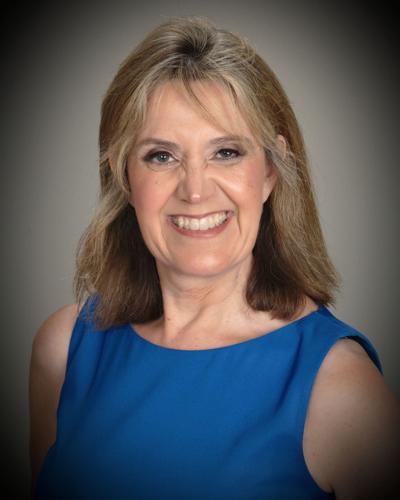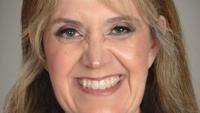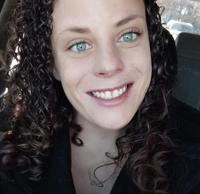Mary Ann Mings grew up in rural Illinois, the exuberant middle child in a hardworking farm family.
Her father worked for the U.S. Department of Agriculture, where he promoted women and other minorities before society – and Ag Department higher-ups – embraced the idea. And he paid them on par with what white men were earning in similar positions before it was required by law.
When neighbors came by the house to ask for help, he often invited them to stay for a meal. “I grew up in a family where there were always a lot of extra people at the table,” Mings said.
She internalized that spirit of helping those in need. Mings’ family legacy is seeing the inherent value in all human beings and knowing, as she said, “there but for the grace of God go I.”
That’s why Mings is so enthusiastic about the nonprofit Circles USA program and agreed to establish Circles Allen County with the support of Broadway Christian Church.
“The key to reducing poverty is building intentional relationships across income lines,” the organization’s brochure states. The local chapter, one of more than 70 nationwide, launched its first group in October.
Mings’ annual goal is to launch two new circles of about 10 people trapped in generational poverty. She moved to Fort Wayne less than a year ago but is quickly establishing her own group of supporters and is searching for more who will help expand the Circles program in Allen and neighboring counties.
Established chapters in the U.S. and Canada have tracked data that Circles advocates say prove the approach works. After 1 1/2 years in the program, the average participant’s income has increased by 71%. At the three-year mark, the average participant’s income has more than doubled – an increase of 121%.
Mings has researched other models of tackling poverty and found Circles has the highest success rate. The program, which was founded by a social worker, has documented a 63% success rate of getting people out of generational poverty.
Forging friendships
Local leaders and their allies, who meet weekly, are still in the program’s 12-week training phase. Each person living in poverty – there are 10 in the group – is referred to as a leader because they are the ones who need to make the decisions and take the necessary actions to improve their lives.
“We are there to help them move forward. We are going to provide everything we possibly can for them to do it,” Mings said. “What we don’t do is do it for them.”
Allies are volunteers who are willing to share what’s referred to as “social capital” with their assigned leaders.
There’s economic poverty, then there’s relational poverty, Mings said. The latter refers to not having a support system of family and friends who are in a position to offer help when needed.
“Poverty is just such a complex issue,” she said.
Sharing social capital often involves making recommendations and giving advice. It’s knowing a reliable mechanic for when your car breaks down, for example. If you grew up in poverty and most of your friends and family can’t afford to own a car, you might not have anyone to ask for that referral.
So, too, if you want to start saving money but have no idea where you can cut costs, an ally can offer suggestions and encouragement.
The one thing an ally may never offer – and a leader may never ask for – is money. The program requires participants to sign pledges that they will never let money pass between them.
Each leader is given two allies, with pairings made based on shared interests, relevant experience and personalities, Mings said. Someone who wants to start a business ideally would be paired with someone who has entrepreneurial experience, for example.
Each leader and ally is asked to commit to the program for 12 to 18 months. Mings knows that illness and vacations will keep some people from attending every weekly meeting, but establishing a consistent presence is important, she said.
In other cities, where the 30-year-old Circles program is well-established, Mings said, some leaders and allies have forged friendships that have lasted for years.
Be a cheerleader
Brenda Majors is one of those allies. She is retired from the Fort Wayne Housing Authority, where she worked in the social science department. Her background includes working with people who were severely mentally ill or dealing with addiction.
People in poverty often have experienced trauma, addiction, domestic violence, sexual assault and other burdens, she said.
Allies are required to go through training to understand what it’s like to live in poverty. Mings doesn’t want any of the allies to respond to a Circle leader’s story with advice to “pull yourself up by your boot straps.”
Majors knows generational poverty firsthand. She followed her mother and grandmother in turning to government assistance for a place to live. She was once married to a man addicted to crack cocaine.
Along with knowing the ins and outs of various housing and other social services programs, Majors provides a friendly ear to those who are struggling.
She wants to be a cheerleader for those going through the Circles program.
“Allies walk alongside,” she said. “A lot of the time, individuals don’t have anyone who will walk with them on their journey, who will listen to them, support them and love on them.”
All is without judgment. That’s important, said Majors, who grew up in a home made chaotic by alcoholism and domestic violence – none of it her fault.
“The struggle is not who you are,” she said. “You want to kind of guide them to see who they are.”
Clean and sober
Kayla Justice could accurately describe herself in several ways. She’s a wife, mother, job seeker, former opioid addict – and circle leader.
The 31-year-old Fort Wayne woman has been clean for almost six years with help from the Bowen Center. She and her husband, who began his addiction recovery at the same time, live in a house paid for with Section 8 government assistance. He is a delivery driver and, combined, they have four children, including three who live with them.
Justice heard about Circles when she went to Broadway Christian Church to ask for help paying a utility bill. She liked the sound of the program and said the built-in child care allows her to attend the evening meetings, which begin with a meal for allies, leaders and leaders’ children.
The children are then taken to another room, where they are supervised, while the adults talk about topics including budgeting, decision-making and problem-solving.
“It is so helpful,” Justice said of being able to bring her children to Circles meetings. “It is amazing of them to allow us to do that.”
Having one weekly meal paid for also makes a difference.
“I just want to go in my car and cry every time I go to the (grocery) store. I feel like I’m getting less but spending more,” she said.
Justice recently secured child care vouchers from Brightpoint, which allow her to drop off her 2-year-old for a couple of hours while she applies for jobs. Once she’s hired, Justice will qualify for additional child care hours each week, she said. That’s if she can manage to get hired.
Justice has two misdemeanor theft convictions on her record from when she was using drugs. One was for shoplifting groceries, and the other was for taking baby wipes. They were necessities she couldn’t afford at the time.
Going international
Moise Ngoumape, 26, could easily pass for a Circles leader based on his age. Many of the leaders are young and many of the allies are middle-aged or slightly beyond.
But the native of Central African Republic has signed on as an ally. His experience of navigating American culture and local community groups is still fresh, and he wants to share what he’s learned.
Ngoumape has another motive for volunteering despite working full time and having a wife, a 2-year-old son and a clothing brand on the side. He wants to understand how the program works so he can share the details with his father, the director of a seminary in Central African Republic.
The land-locked country is surrounded by Chad, South Sudan, Cameroon and Democratic Republic of the Congo. And it’s also one of the 10 poorest countries in Africa. Ngoumape believes the Circles program might give Central African Republic residents a path to a brighter future.
About his busy schedule, which includes additional volunteer work, Ngoumape said, “I sleep three hours a day. I’m just motivated to get things done.”
That determination is what drove Ngoumape to teach himself computer coding after depleting his college fund after studying at Grace College for 1 1/2 years. He was hired by Brotherhood Mutual Insurance’s information technology department a year ago.
His background, Ngoumape said, will allow him to share time-management tips with his assigned circle leader and advice on how to launch a business based on what he’s learned from starting his clothing line.
“I think that’s what I can bring to the table to encourage them,” he said. “Sometimes it isn’t all about the money. It’s about encouragement.”
No faith required
Practical skills, knowledge and encouragement are vital parts of the Circles program. Religion is not.
The first local Circles group meets at Come As You Are Community Church on South Anthony Boulevard. And Mings’ salary is paid by Broadway Christian Church, which hired her after Pastor Ryan Cochran and church elders decided to expand their Inasmuch Ministry, which provides food, clothing, financial and other short-term assistance to the poor.
Even so, Circles is not faith-based. No participant is asked to join either church or support them in any way, Mings said.
Ngoumape’s parents are African missionaries. He’s willing to talk about his faith with anyone who asks, but he doesn’t feel called to convert people.
Majors, the Fort Wayne Housing Authority retiree, is also a person of strong faith. She sprinkles her conversation with quotes from the Bible. Prayer and fellowship with other believers were Majors’ allies when she pulled herself from poverty, she said. But she won’t talk about them with her circle leader unless asked.
The Circle program’s aims are clearly spelled out in the local group’s mission statement. “Our long-term goal is to reduce the number of families in poverty in Allen County by 10%. Our short-term goals for our clients are jobs that pay a living wage, housing that is both safe and affordable, reliable transportation, and the creation of social networks that support their movement toward self-sustainability.”
Mings not only believes those goals are attainable, she is determined to reach them.
She managed a Chicago-area factory for 30 years, building a skilled workforce of about 1,200. Included were people who applied for work while living in homeless shelters. Others were refugees from overseas and some were convicted criminals on work release.
Mings, who followed her father’s leadership example, saw past their circumstances.
Her goal for the local Circles program includes helping leaders start micro businesses.
She is striving to make the program self-sustaining, able to employ and teach the circle leaders how to run a business. She has already approached one foundation with the idea.
It’s another way Mings is like those who enroll in the Circle program.
“I just need to get off the ground,” she said.
The idea of working hard now to reap long-term benefits isn’t lost on Justice, the circle leader who grew up in a one-parent household with a mother who didn’t know how to manage money.
“I’m excited to grow and do better for my family,” Justice said. “I want to pass this (knowledge) along to my children and get them off to a good start.”











